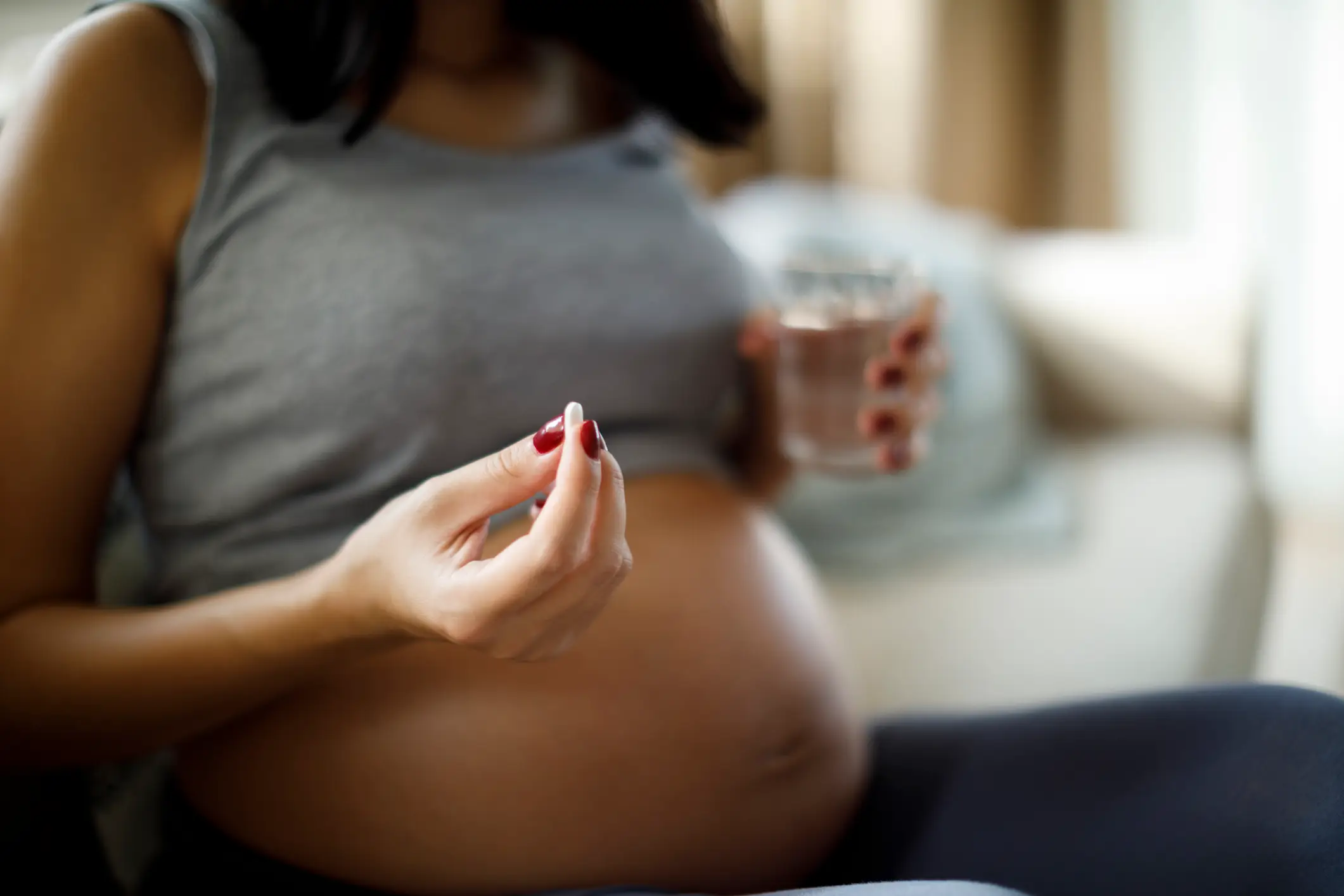
Anyone who's been pregnant will likely know all about the dreaded pregnancy sickness symptoms that comes with it.
Nausea and vomiting, often known as morning sickness, is unfortunately a very common part of pregnancy and can affect sufferers any time of day or night.
However, scientists reckon they've now finally discovered exactly why they think some people get severe morning sickness which could, hopefully, one day lead to better treatments for those who suffer with it.

Advert
According to the NHS, morning sickness is very common in early pregnancy and it can affect you at any time of the day or night or you may feel sick all day long.
Unsurprisingly, the whole ordeal is extremely unpleasant and can significantly affect your day-to-day life.
While it usually clears up by weeks 16 to 20 of your pregnancy and does not put your baby at any increased risk, there is a chance of developing a severe form of pregnancy sickness called hyperemesis gravidarum.
This can end up being pretty serious as you may not get enough fluids in your body leading to dehydration or not get enough nutrients from your diet and becoming malnourished.
It has long-since been regarded as something that is simply just 'part and parcel' of being pregnant, however, researchers have now shed some light on the issue and found that pregnancy sickness is often primarily caused by a single hormone, called GDF15.
Receptors for the hormone are found in the part of the brain namely responsible for feeling sick and vomiting.
The study, which has been published in the Nature journal, has said that the groundbreaking discovery could lead to better treatments for morning sickness.

Researchers found that the amount of the GDF15 hormone circulating in a woman's blood during pregnancy as well as her exposure to it before pregnancy increased the severity of the symptoms.
The whole field is totally under researched considering over two-thirds of pregnant people experience nausea and vomiting during the first trimester while around 2 percent end up hospitalised for hyperemesis gravidarum,
Even though hyperemesis gravidarum is the leading cause of hospitalisation during early pregnancy, according to experts, its severe symptoms are often overlooked as psychological potentially because nausea and vomiting are so common in pregnancy.
"I've been working on this for 20 years and yet there are still reports of women dying from this and women being mistreated," said Dr Marlena Fejzo, a geneticist at the University of Southern California Keck School of Medicine and a co-author of the new study.
Dr Rachel Freathy, who is a geneticist at the University of Exeter and was not involved in the study, echoed: "There is kind of an assumption made by many people that women should just be able to cope with this.
"There will be more belief that this is a real thing rather than something in somebody’s head."

The new study, which saw Dr Fejzo and collaborators at the University of Cambridge in England measure the hormone in pregnant women’s blood before analysing the genetic risk factors for hyperemesis, found that there was a causal link between GDF15 and morning sickness.
They found that those experiencing hyperemesis had significantly higher GDF15 levels during pregnancy than the people who had no symptoms.
Researches also discovered, therefore, that the condition could be preventable as women in Sri Lanka who had a rare blood disorder which caused extremely high levels of GDF15 rarely experienced it.
"It completely obliterated all the nausea. They pretty much have next to zero symptoms in their pregnancies," said Dr Stephen O’Rahilly, an endocrinologist at Cambridge who led the study.
Dr O’Rahilly then hypothesised that the extended exposure to the GDF15 home before pregnancy could end up having a protective effect, making people less sensitive to the speedy increase in the hormone caused by the developing fetus.
About time.
If you have been affected by the contents of this article, please find more information and support via Pregnancy Sickness Support UK on their website, or call 024 7638 2020.
Topics: Health, Life, Real Life, Pregnancy, Parenting, Science